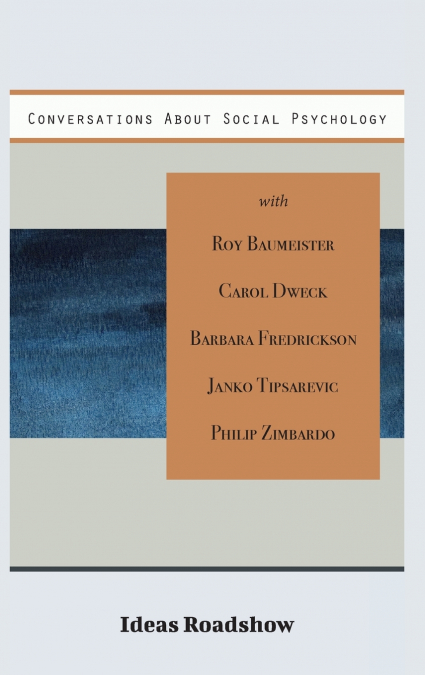
Howard Burton
This compendium includes the following 5 complete books featuring renowned psychologists Roy Baumeister, Carol Dweck, Barbara Fredrickson, Philip Zimbardo and professional tennis player Janko Tipsarevic providing fully accessible insights into cutting-edge academic research while revealing the inspirations and personal journeys behind the research. I. Being Social - A conversation with Roy Baumeister, Professor of Psychology, University of Queensland. Topics covered include: a detailed exploration of Baumeister’s unique combination of biological and psychological thinking from recognizing essential energetic factors involved with willpower and decision-making, to framing free will in evolutionary biological terms to measuring the numbness associated with social rejection as a form of analgesic response.II. Mindsets: Growing Your Brain - A conversation with Carol Dweck, the Lewis and Virginia Eaton Professor of Psychology at Stanford University. This wide-ranging conversation provides behind-the-scenes, detailed insights into the development of Dweck’s important work on growth mindsets and fixed mindsets: how different ways of thinking influence learning ability and success.III. The Mind-Body Problem - A conversation with Janko Tipsarevic, founder and CEO of Tipsarevic Tennis Academy in Belgrade, Serbia. Tipsarevic is a former professional tennis player, with a career-high singles ranking of world No. 8. This conversation gives unique, behind-the-scenes insights into what it takes to achieve excellence in professional sports, what mindset is needed to reach one’s true potential and a penetrating and inspirational window into the social psychology of professional tennis.IV. The Science of Emotions - A conversation with Barbara Fredrickson, Kenan Distinguished Professor of Psychology and Director Positive Emotions & Psychology Laboratory at the University of North Carolina at Chapel Hill. Topics covered include Fredrickson’s extensive work on the science of positive emotions, including her broaden-and-build theory, the undoing effect and upward spirals, while highlighting relevant evolutionary-driven hypotheses together with measurement details of empirical studies.V. Critical Situations - A conversation with Philip Zimbardo, Professor Emeritus of Psychology at Stanford University. Philip Zimbardo relates his intriguing life history and the survival techniques that he developed from the particular dynamics of his upbringing in the Bronx to his quarantine experiences, his relationship with his former classmate Stanley Ingram and the impact those experiences in his youth had on the development of his personal situational awareness and how that influenced his psychological research. After a detailed description of the notorious 1971 Stanford Prison Experiment, Zimbardo discusses what we have-and haven’t-learned since then, the Abu Ghraib trial, his Heroic Imagination Project, and more.